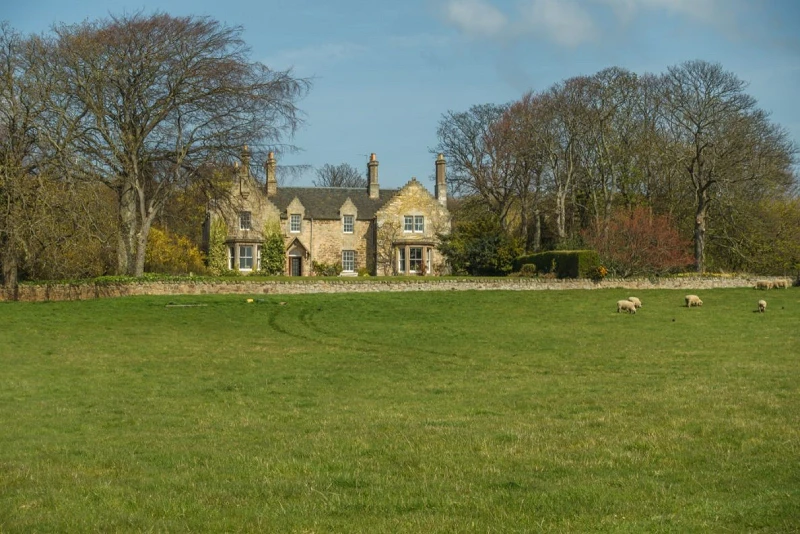Behind the grand gates and rolling landscapes of Britain's country estates lies a thriving world of rural jobs that most people never see. From the spectacular Scottish Highlands to the expansive coast of Norfolk, these properties require dedicated teams of professionals to maintain their operations, creating diverse career opportunities for those seeking meaningful work in stunning countryside settings.
Rural jobs on these spacious estates include:
Estate Manager
Maintenance Manager
Property Manager
Estate Administrators
Gamekeepers
Groundskeepers
Housekeepers
#The Role of the Modern Estate Manager
At the heart of every successful country property is an estate manager who orchestrates the complex daily operations. These professionals oversee everything from staff coordination to financial planning, making them among the most sought-after candidates in rural jobs recruitment. An estate manager typically combines business acumen with practical countryside knowledge, ensuring properties run smoothly whilst preserving their heritage and natural beauty.
The role demands exceptional organisational skills and the ability to manage multiple departments simultaneously. Estate managers often find themselves coordinating with gamekeepers in the morning, reviewing maintenance schedules by afternoon, and planning seasonal events by evening. This variety makes estate management one of the most dynamic rural jobs available today.
#Conservation Meets Tradition for Gamekeepers shutterstock_2386055843 (2).jpg 121.49 KB
shutterstock_2386055843 (2).jpg 121.49 KB
The role of gamekeepers is one of the most traditional yet evolving rural jobs. Modern gamekeepers are conservation experts who balance wildlife management with sustainable shooting practices. They monitor bird populations, maintain habitats, and ensure the countryside remains vibrant and biodiverse.
Today's gamekeepers use advanced technology alongside time-honoured techniques. GPS tracking systems help monitor wildlife movements, whilst traditional knowledge guides habitat restoration projects. Many estates now employ teams of gamekeepers, creating career progression opportunities from junior keeper to head gamekeeper roles.
The work varies dramatically with the seasons. Spring brings breeding season management and habitat preparation, whilst autumn focuses on shooting season organisation. Winter months are dedicated to maintenance tasks and planning for the following year. This seasonal rhythm appeals to many seeking rural jobs that connect them intimately with the natural world.
#Property Maintenance: The Backbone of Estate Operations
Maintenance teams form the backbone of estate operations, ensuring historic buildings, modern facilities, and extensive grounds remain in pristine condition. These property maintenance jobs encompass everything from traditional stone masonry to modern renewable energy systems.
Estate maintenance roles often specialise in specific areas. Some focus on historic building preservation, requiring skills in traditional crafts like lime mortaring and heritage roofing techniques. Others concentrate on mechanical systems, managing everything from heating systems in grand houses to agricultural machinery maintenance.
Groundskeeping represents another crucial aspect of estate maintenance. These professionals maintain formal gardens, manage parkland, and ensure sporting facilities remain in excellent condition. Many estates employ specialist groundskeepers for different areas, including dedicated garden teams and sports ground specialists.
#Estate Administrators: Excellence Behind the Scenes
The administrative side of estate management offers sophisticated rural jobs that blend traditional country life with modern business practices. Estate administrators handle everything from staff payroll to regulatory compliance, ensuring operations run seamlessly behind the scenes.
A specialist area within estate administration is property administration. These roles focus on specific areas such as let property management, where they coordinate rental properties and holiday lets across the estate. Others focus on event coordination, managing everything from private shoots to wedding celebrations. These roles require strong communication skills and attention to detail.
Financial administration represents another crucial area, with specialists managing estate budgets, grant applications, and investment planning. Many estates employ dedicated bookkeepers and accountants who understand the unique financial structures of country properties.
#Household Management: Creating Seamless Daily Life
Household management roles within estate settings offer some of the most rewarding rural jobs for those who enjoy creating comfortable, well-organised living environments. These positions combine traditional household skills with modern hospitality standards.
Head housekeepers oversee teams responsible for maintaining private residences to exceptional standards.
A head housekeepers role includes:
Coordinating cleaning schedules.
Managing household budgets.
Supervising domestic staff
Managing guest accommodation
Coordinating with external service providers.
Butler and personal assistant roles have evolved significantly, now incorporating technology management, travel coordination, and lifestyle management services. These rural jobs often come with excellent accommodation and the opportunity to work in some of Britain's most beautiful historic houses.
#Career progression in Rural Jobs
There is a lot of potential for genuine career progression within rural jobs. Many professionals begin in junior roles before advancing to department head positions or eventually becoming estate managers. The rural jobs sector values practical experience alongside formal qualifications, making it accessible to career changers seeking countryside opportunities.
There are many professional development opportunities, from gamekeeping courses to estate management degrees. Most estates support staff training, recognising that skilled professionals are essential for successful operations.
The diversity of roles means individuals can find positions matching their skills and interests whilst enjoying the benefits of countryside living. Whether your background lies in business, conservation, hospitality, or traditional crafts, estate management offers rural jobs that combine career satisfaction with exceptional working environments.
At Larstone Recruitment, we specialise in matching talented professionals with exceptional rural jobs across Britain's finest country properties.
Contact us today to talk about how we can launch your career in stunning countryside settings.


